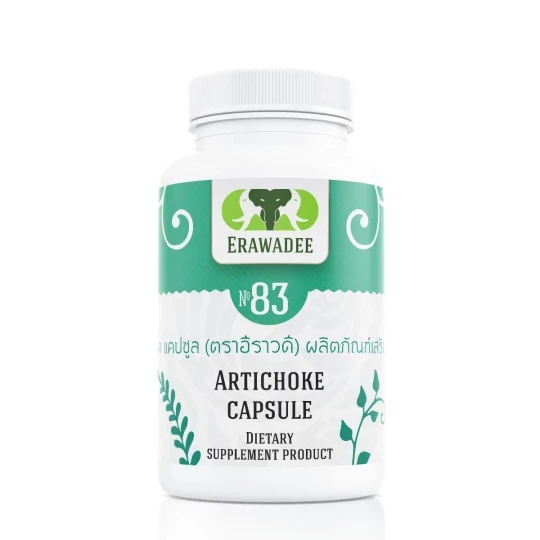No.83 Artichoke capsules for the liver
Prevention and treatment of liver diseases of various etiologies, including fatty, alcoholic, drug, toxic and viral genesis. Restores the protective functions of liver cells. It has choleretic, litholytic, antioxidant effects in the treatment of NAFLD and metabolic syndrome. It has a choleretic effect, reduces the level of fatty acids, reduces the level of LDL ("bad" cholesterol).
Artichoke for the treatment of the liver: useful properties and effects
Artichoke has a proven positive effect on liver health. This herbal product is a rich source of active substances such as cynarine, quercetin and silymarin. They have antioxidant, anti-inflammatory, and anti-hepatotoxic properties that help protect the liver from damage and promote liver repair.
The most studied plant derivative of the artichoke is silymarin. It has strong antioxidant and anti-inflammatory effects. Silymarin effectively protects liver cells from the effects of free radicals, which can become a source of damage. In addition, silymarin helps increase protein synthesis in the liver, which helps it perform its functions more efficiently.
Artichoke also helps lower blood cholesterol and triglyceride levels. This is important for liver health, as elevated cholesterol levels can lead to fatty liver disease, and triglycerides can cause liver inflammation.
All these properties make the artichoke very useful in treating and maintaining liver health. However, before including artichoke in your diet or starting treatment with it, it is recommended to consult a doctor or nutritionist. They will be able to recommend the correct dosage and take into account the individual characteristics of your body.
Indications for use
- chronic hepatitis (alcoholic, drug, toxic, autoimmune, viral);
- NAFLD (non-alcoholic fatty liver disease) in the stage of steatosis and steatohepatitis;
- biliary dyskinesia, cholecystitis;
- hyperbilirubinemia;
- metabolic disease;
- dyspepsia (nausea, heaviness in the epigastrium).
- In complex treatment:
- chronic renal failure;
- urolithiasis, gouty arthritis;
- uraturia;
- atherosclerosis;
- obesity.
Side effects and contraindications
Artichoke is generally well tolerated by most people and rarely causes significant side effects.
However, in rare cases, some adverse reactions or side effects may occur when consuming artichoke. Some of these may include:
Increased bile secretion: Artichoke can stimulate the secretion of bile, which can cause discomfort in some people such as heartburn, nausea, or vomiting. This is especially important for people with pre-existing gallstone disease.
Allergic reactions: Some people may experience allergic reactions to artichoke, such as skin rash, itching, and swelling of the lips or tongue. If you experience an allergic reaction, you should stop eating artichoke immediately and seek medical attention.
Increased urine output: Some people may notice an increase in the frequency of urination when eating artichoke. This is due to its diuretic properties. However, this can be normal and is rarely a cause for concern unless there are other symptoms.
Drug Interactions: Artichoke may interact with some medications, including those that may be prescribed for liver disease. Therefore, if you are taking any medication, it is always recommended to check with your doctor or pharmacist before starting artichoke.
Although side effects from artichoke are rare, it is important to be careful and cautious when using it.
Usage and Recommended Dose
2 capsules 3 times daily before or after meals
Specifications
No.83 Artichoke liver capsules 250 mg x 100 capsules
Feedback and questions:
5/5 (4 reviews)
If you have any questions, please contact us:

